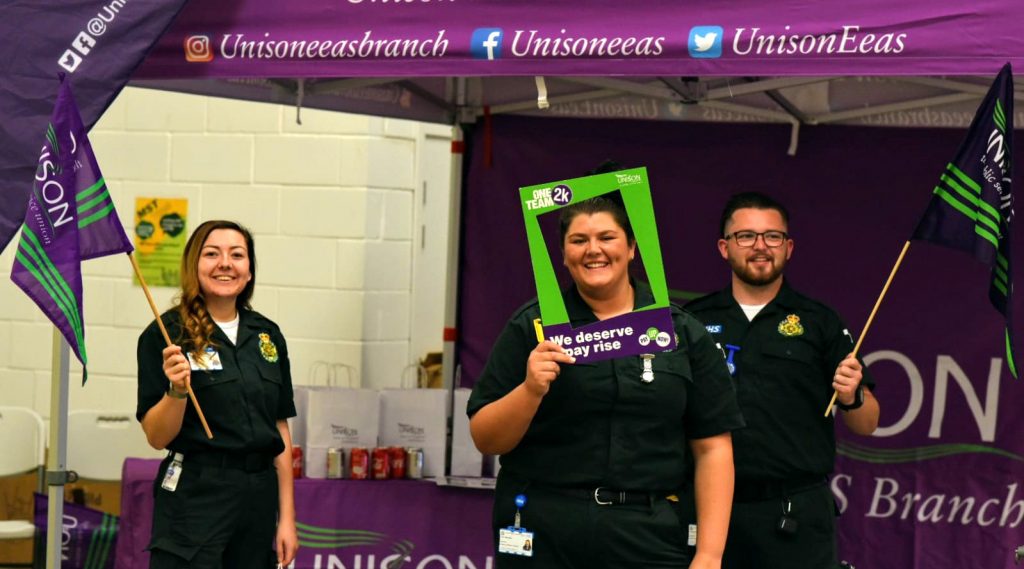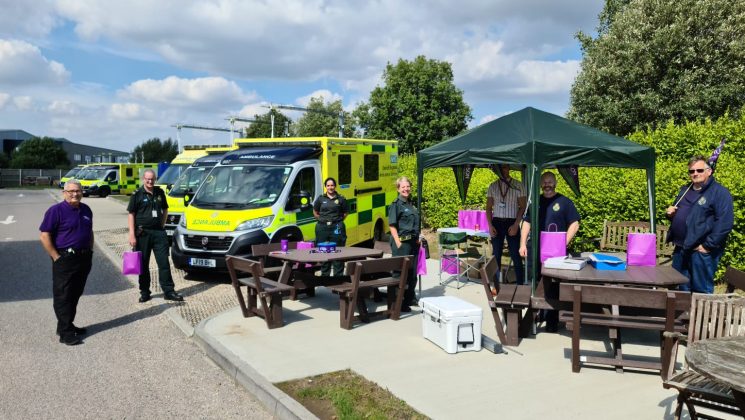A record number of public service workers have joined UNISON this year. Our union has over 27,000 more members than it had at the start of the year.
In the East of England, the hard work of activists has really paid off. We are one of the smallest regions in the union but we are one of the fastest growing.
Workers in local government, schools, the NHS, social care, universities, colleges, the police and all branches of our public services have joined UNISON Eastern.
All those new joiners now understand what we have known for years – that the world of work is often uncertain and insecure and by joining the biggest union in the UK they can contribute to a collective movement which protects them and their colleagues.
They’ve not just joined because they’re scared for their jobs or scared about their health. They’ve joined because they know that by being in UNISON they can actually do something to stay safe.
Not all unions have grown this year. UNISON has because we work hard to identify the key issues facing our members (and those who are not yet members) and then make sure our members, activists and staff work together to resolve those issues. To put it simply – we have stayed relevant.
Among our fastest-growing branches is the one organising ambulance workers in the region, mainly in one core NHS employer, but also in private firms. Nearly 600 paramedics, patient transport drivers, emergency medical technicians, call handlers, dispatchers and support staff have joined UNISON this year.
Many of these were recently employed by the NHS trust, but a significant proportion were experienced staff who saw local activists making a real difference in their working lives and wanted to be part of a union that was fighting for them.

When the employer considered reducing compensatory payments for staff that were forced to miss their meal break, local activists surveyed members and obtained evidence of the impact this would have and how angry our members were. They presented the evidence to the trust and it’s no longer progressing the proposals.
When activists realised that staff on one development pathway had different opportunities to those on other pathways, they spoke to the staff and highlighted what they needed to do to get the same career progression as their colleagues. Workers joined, followed the advice of their union and secured change.
When employers launch consultations, our activists are clear with the affected members that one of them needs to step up and be the UNISON contact point so they need to recruit the non-members to maximise the union’s collective voice.
The branch Black members officer has attended the employer’s internal BAME Network and encouraged Black staff to get active in their union’s fight for racial equality.
Activists have attended workplaces and spoken to members to find out more about particular issues in each workplace to organise around. But they know they can’t reach everyone in person so they have used UNISON’s branch website tool to showcase information online and are active on Facebook, Twitter and Instagram.
All this work resulted in more members and more activists.
It shows the advantages of being clear with members that we can achieve more if they participate in their union rather than waiting for others to sort out their problems. It shows how a fighting union can be built and sustained even during a pandemic.
They have achieved so much but they aren’t complacent – they will keep fighting for their members in 2021.

